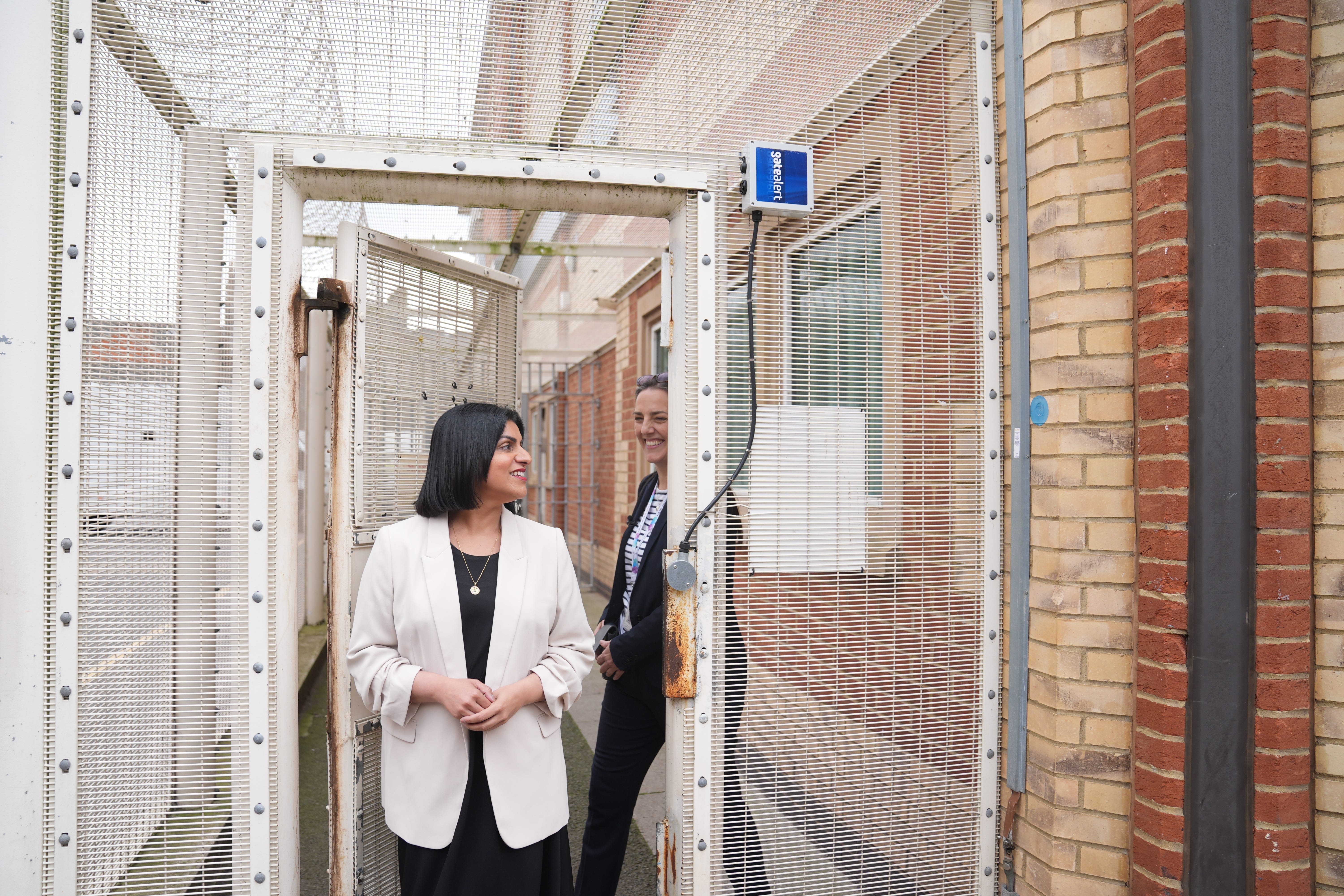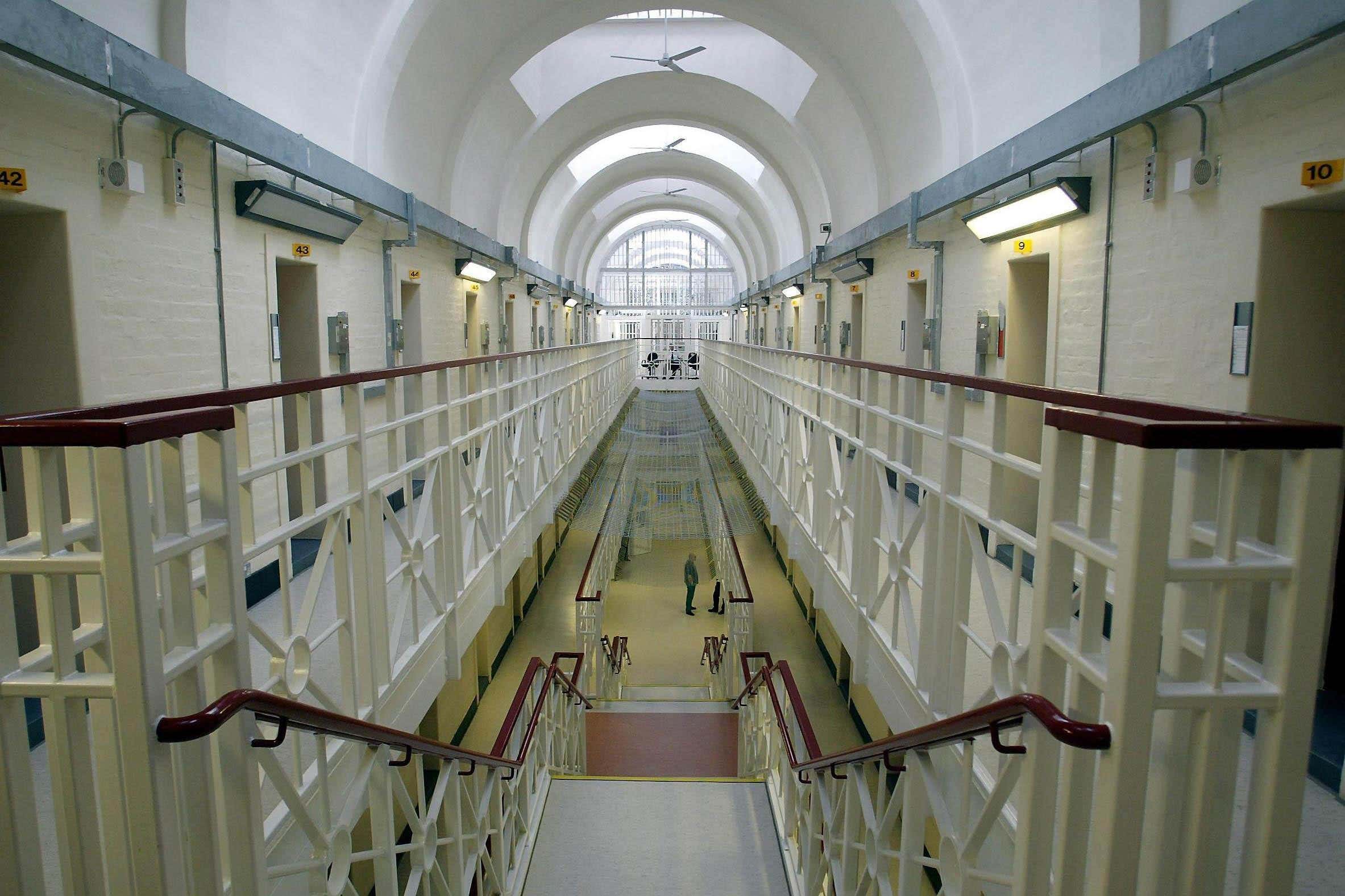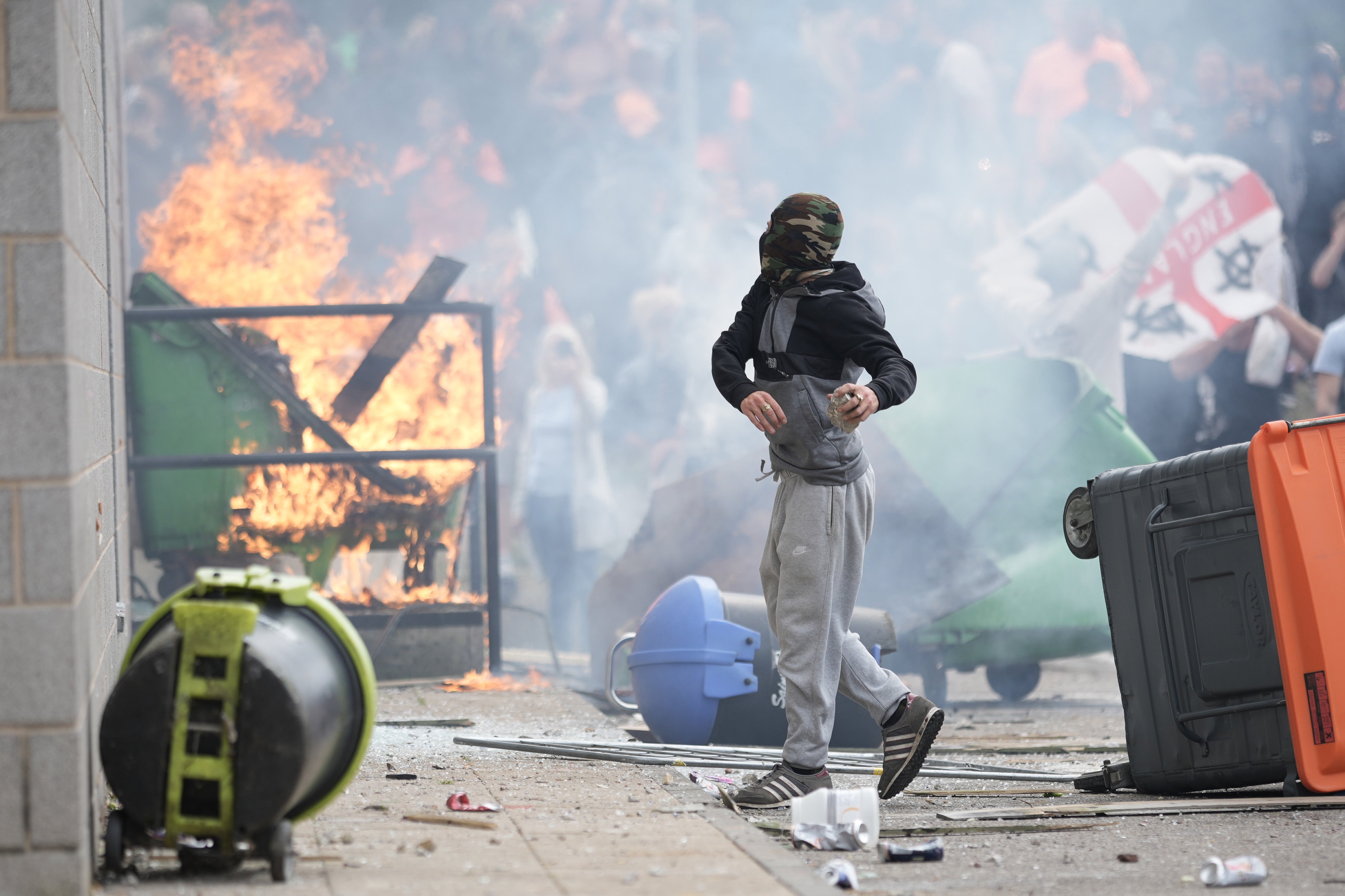Prison capacity already ‘touch and go’ as far-right riots heap pressure on crisis-hit justice system
Keir Starmer vows to ‘make appalling situation work’ in housing all those remanded in prison custody
Your support helps us to tell the story
From reproductive rights to climate change to Big Tech, The Independent is on the ground when the story is developing. Whether it's investigating the financials of Elon Musk's pro-Trump PAC or producing our latest documentary, 'The A Word', which shines a light on the American women fighting for reproductive rights, we know how important it is to parse out the facts from the messaging.
At such a critical moment in US history, we need reporters on the ground. Your donation allows us to keep sending journalists to speak to both sides of the story.
The Independent is trusted by Americans across the entire political spectrum. And unlike many other quality news outlets, we choose not to lock Americans out of our reporting and analysis with paywalls. We believe quality journalism should be available to everyone, paid for by those who can afford it.
Your support makes all the difference.It is “touch and go” whether prisons have enough capacity to house offenders, as the far right-fuelled riots sweeping the country heap further pressure on a justice system already in crisis, experts have warned.
Disorder continued across the weekend and Monday as racist mobs clashed with police in areas including Birmingham, Plymouth, Hull, Halifax, Liverpool, London, Southport and Rotherham, and started fires at hotels housing asylum-seekers in Manvers and Tamworth.
Nearly 400 people have already been arrested, with Downing Street suggesting that emergency measures used during the 2011 riots to allow courts to sit overnight could be implemented so that the influx of new cases can be prosecuted.

With many lawyers who were practising during the mass disorder 13 years ago now recalling the “brutal” response which saw a majority of those suspects denied bail, reports began to emerge of those being prosecuted for the ongoing riots also being remanded in prison custody to await trial.
But the courts are already facing a record backlog of criminal cases, while prisons are running at 99 per cent of capacity ahead of the latest emergency measures to free prisoners 40 per cent of the way into their sentence coming into force in September.
The situation has been so dire in recent months that police chiefs were told in May to consider halting “non-priority arrests” until the prison crisis eased, with the previous government also allowing defendants to be held in police cells rather than being transferred to court until prison beds became available.
With fewer than 1,500 prison places left across the entire system, Sir Keir Starmer insisted on Monday that his government was monitoring the “appalling” situation daily and “will make this work and ensure that we have got the places that are needed to bring the perpetrators swiftly to justice”.
Justice minister Heidi Alexander suggested that courts could begin sitting through the night to swiftly see rioters in the dock after the government put the additional courts protocol into force.
But both the Criminal Bar and Criminal Law Solicitors associations have warned they strongly oppose overnight courts, with the latter group warning: “There is no capacity in the system because of the neglect going back decades.”
While no emergency procedures have yet been activated and court sittings have not yet been extended beyond typical hours, No 10 said an extra 70 prosecutors had been on hand over the weekend “to quickly charge criminals”.

Ministers also claimed to be bringing forward plans to free up 500 new prison places in the next month, including a new block at HMP Stocken, new cells at HMP Cookham Wood and remedial fire safety work on other cells.
The plans for additional prison capacity were discussed at Monday’s Cobra meeting, with a Downing Street spokesperson saying the government was “confident the prison service has the capacity needed to lock people up”.
Steve Gillan, chief of the Prison Officers Association, told The Independent on Monday that the union had yet to be put on notice of the potential for large-scale arrests, and said officers would work with the Prison Service to ensure the public are kept safe.
“Anything like this when the prison system is in such a precarious state will be a worry,” said former chief inspector of prisons Nick Hardwick.
“For this month, the system is already at a point where it’s skating on very thin ice. They don’t want anything that increases demand or lessens capacity that is going to tip the system over.”
Professor Hardwick told The Independent: “Clearly a large number of custodial remands and sentences will put pressure on an already grossly overcrowded system. The prison system coped after the riots in 2011 but the system now is in a much worse situation than it was then.”
Despite being “relieved” by government assurances that the system can cope, he added: “Nevertheless, it will be very tight and underlines the need for the prison system to be managed so that it can always implement the decisions of the court, even if there is an unexpected surge in demand or reduction in capacity.”

Speaking to The Indepenent as Monday’s Cobra meeting took place, Carl Davies, of the Prison Governors Association, said: “The capacity issue is touch and go still. It’s a very thin line.”
But he believed it was unlikely that hundreds of detainees would all be brought into prisons overnight – which he warned would destabilise the system – and suggested that capacity restraints currently hampering police forces and the courts system should help to avoid a sudden influx of new prisoners.
“The police can only do one thing at a time,” he said. “If police are dealing with these marauding violent yobs, they’re not arresting other people. And if courts are remanding these people into custody and doing bail hearings, they’re not doing the other [cases].”
Warning that there is “absolutely no flex in the system” to deal with unexpected pressures on prison capacity, Richard Garside, director of the Centre for Crime and Justice Studies, accused successive Tory governments of fuelling the crisis by increasing sentence lengths while “doing nothing” to reduce the prison population.

“Labour has inherited a situation not of their making, but they are now at risk of repeating all the mistakes of the outgoing government,” Mr Garside said.
Noting that the number of people going into prison each year has dropped vastly from around 80,000 in 2013 to 46,500 a decade later, he added: “So what’s happened is we’ve got a remand and recall problem out of control and sentencing inflation.
“This is not a sustainable situation in the long run – unless they are just going to throw billions into expanding the prison estate and we’ve been told there’s big holes in the budget and Rachel Reeves is trying to find savings.”
He called for a focus on the maintenance of the current prison estate over expanding it, as well as policies to reduce its population.
The justice minister said the new prison places would start coming into use as soon as next week, telling BBC Radio 4’s Today programme: “We will make sure that anyone who is given a custodial sentence as a result of the riots and disorder, there will be a prison place waiting for them.
“What we have been able to do in the last week since the problems have arisen is that we have been able to bring forward some additional prison places that we had been due to bring on stream later in the month. There are 567 additional prison places.”
Join our commenting forum
Join thought-provoking conversations, follow other Independent readers and see their replies
Comments